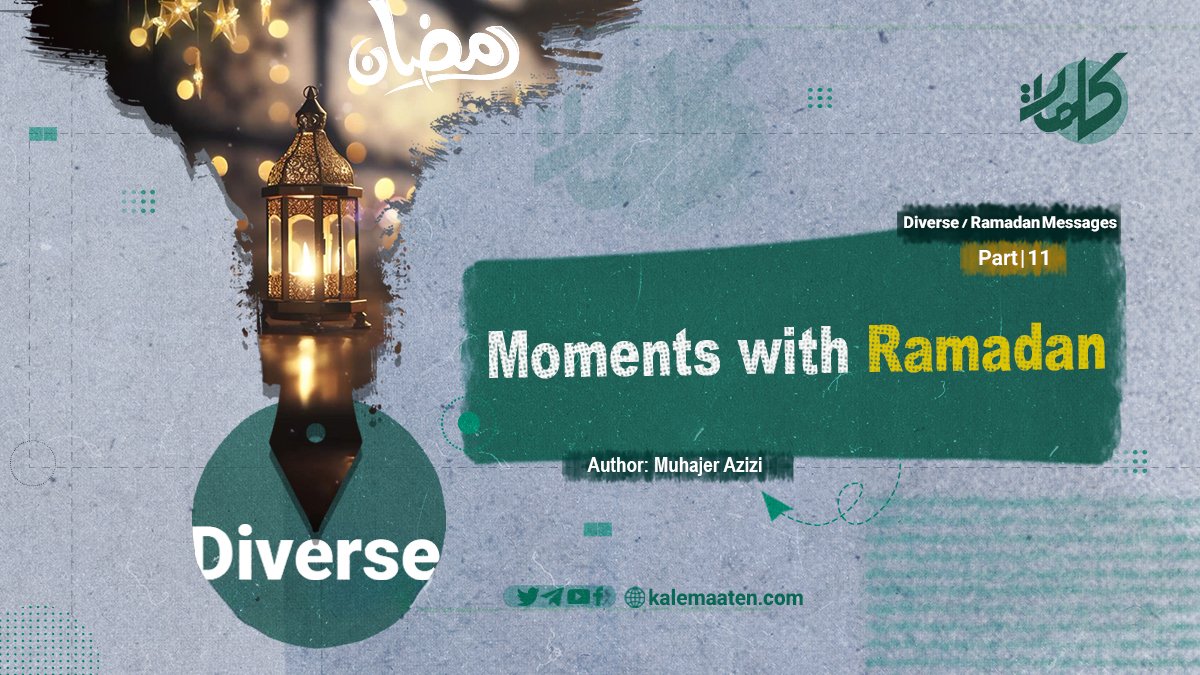
Author: Muhajer Azizi
Moments with Ramadan (Part Eleven)
2. Physical and Medical Benefits of Fasting:
Fasting, in addition to its spiritual and social benefits, has numerous positive effects on physical health. Medical scientists from various countries around the world, through recent research, have concluded that fasting has significant impacts on human health and can help treat many diseases. The Quran and Sunnah also emphasize the value and benefits of fasting. Allah, the Almighty, says:
وَأَنْ تَصُومُوا خَيْرٌ لَكُمْ إِنْ كُنْتُمْ تَعْلَمُون
Translation: And fasting is better for you, if only you knew.
Additionally, the Prophet (PBUH) considered fasting a means of attaining good health and said: صُومُوا تَصِحُّوا translation: “Fast so that you may stay healthy.”
Islam places special importance on physical health and encourages its followers to maintain their well-being. A sick and weak person cannot perform acts of worship properly, which negatively affects both their religious and worldly life.
Imam al-San‘ani (MABH) states:
Good health is desirable because, through it, both religion and worldly affairs are perfected. It is said that the key to guidance and well-being is hunger, for when the body’s organs are dedicated to Allah, He illuminates the heart, purifies the soul, and strengthens the body.
As it has been said: “Most of the diseases you see arise from overeating and excessive drinking.”
Thus, fasting, by controlling food and drink intake, prevents many illnesses and promotes physical health.
Western scientists have also recognized the extensive benefits of fasting, particularly its positive effects on physical health, through scientific research.
Below are some of their perspectives:
1.Alexis Carrel, a French surgeon, writes about the physical benefits of fasting:
“During fasting, blood sugar is stored in the liver, accumulated fat beneath the skin is released, and the proteins in muscles, glands, and liver cells are utilized for nourishment.”
He adds:
“The necessity of fasting is emphasized in all religions. During fasting, one initially experiences hunger and sometimes nervous agitation, followed by weakness. However, hidden physiological processes of great importance become active. Ultimately, all bodily organs sacrifice their specific substances to maintain internal balance and heart function. In this way, fasting cleanses (detoxifies) and rejuvenates all bodily tissues.”
2.Gunnel Pay, a French scientist, states:
Four-fifths of diseases result from food fermentation in the intestines, which can all be corrected through fasting.
3.Tomanianis writes about the benefits of fasting:
The greatest advantage of reduced food intake and dietary restriction over a short period is that the stomach, during a month of fasting, eliminates its residual food, whereas for the other eleven months, it is constantly digesting. Additionally, the liver, which continuously secretes bile, utilizes its bile secretion during these 30 days to dissolve leftover food substances. As a result, the digestive system, with reduced food intake, gets some rest and is relieved from exhaustion.
4.Dr. Alexey Suforin states:
During fasting, instead of receiving external food, the body relies on its internal reserves, eliminating toxic and infectious substances that are the root of many diseases. In this way, fasting helps cure numerous ailments. Therefore, cleanse your body from within through fasting.
Continues…
[1]. Al-Baqarah: 184.
[2]. Kanz al-Ummal, vol. 8, p. 450.
[3]. Al-Tanwir Sharh al-Jami’ al-Sagheer, vol. 7, p. 16.
[4]. Khabarban website, 1397.
[5]. Borna website, 1402.
[6]. Ibid.
[7]. Ibid.


